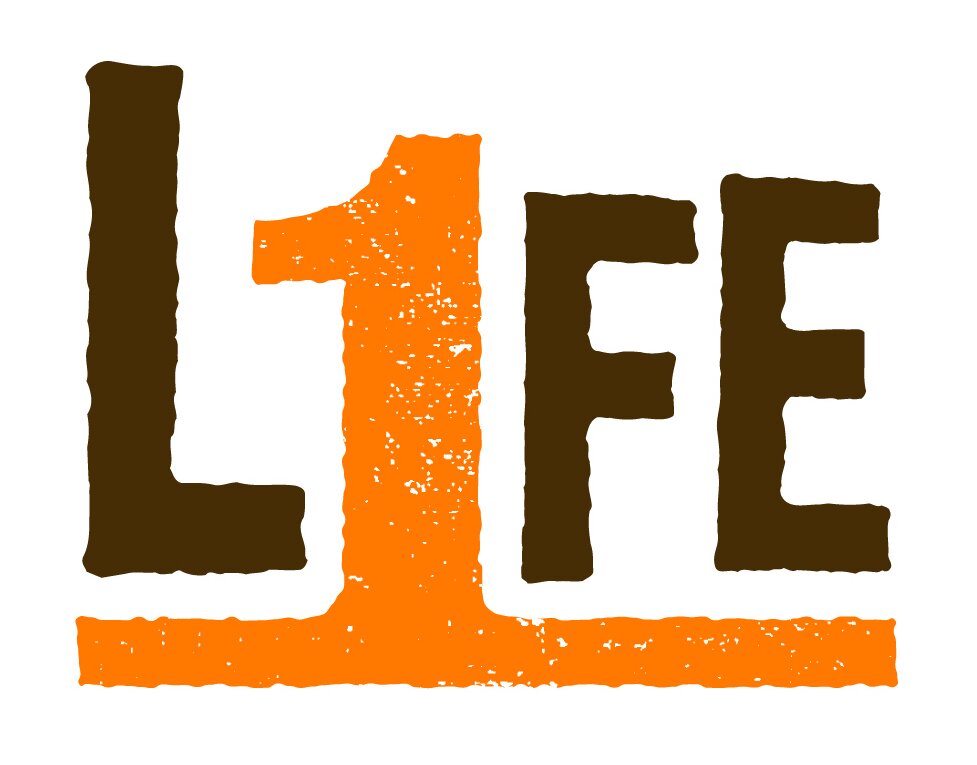blogging from the charlotte nywc
here’s an evolving list of bloggers who have said they’ll be posting from the charlotte national youth workers convention this weekend…
natalie stadnick
aaron
kirk moore
justin ross
(all the way from scotland!)
brian wallace
jeff b lukens (note: the b is a middle initial!)
gman
derek
patti g
katie
sayward
shari
nicoleross
mike king
nathan
deanito
lilly lewin
amanda
and, as one might expect, me
free one life curriculum

i am VERY excited about this free curriculum being offered through a partnership with ys, world vision, and fuller seminary’s center for youth and family. there’d been some talk a while back about replacing the free curriculum we offer with the one life program (new website there, btw), and kara powell at cyfm stepped up with a desire and a suggestion about how to get it done. she got funding from a grant, studied a bunch of “best practices” churches who seem to really get traction with involving teenagers in serving others, studied (with help from WV) issues surrounding AIDS in africa — particularly as it relates to orphans and widows, then developed this curriculum that is theologically grounded, research-based, and just plain kickin’ good.
kara’s one of the better curriculum writers out there in the youth ministry world as it is, imho — but for this project, she was able to dedicate a significant amount of time and other resources, which really, substantially, increases the quality.
of course, anyone can download this and use it. it is free, afterall. but we sure would hope that if you’re going to download it and use it, that you would consider involving your youth group in the one life program this year. my own middle school group will be involved for our third year, and i’m totally pumped to see what god will do this time around.
good question about middle schoolers and doubting
’sean’ commented on my post about middle schoolers and doubts with this great question:
Is doubting your faith or your parents faith system necessary for spiritual growth? I ask because I have a few people, after reading your article, tell me that they have never gone through this. One is my senior pastor. They took offense to the notion that they must have a stunted or childish faith. Personally, I went through this, and I’m a stronger believer for it, but I can see my pastor’s point. Is he lying to himself? I don’t know. You got anything?
here’s my response:
good question, sean.
a couple responses:
1. yes, i think it’s essential. and i think it’s more likely that your pastor and other adults just don’t remember that they went through that process. it may not have been dramatic (which could be part of why they don’t remember it — combined with the fact that MOST of us don’t have many memories of the young teen years).
2. part of the rub could also be a definition of “doubting”. i’m really talking about a re-evaluated faith system — a decision (or more likely, a series of decisions) to take responsibility for a faith that had previously been inherited. maybe, in the case of your pastor and other adults (the minority, i would venture) it would be better to think of this process in ‘ownership’ terms, or ‘identity’ terms, rather than doubting. but the point remains: young to mid-teens need to go through a process of evaluating their faith (this is often not a process they are fully conscious of) and re-staking the ground of their own faith system.
technorati tagged for youth ministry
farting preacher 5
Wednesday November 29th 2006, 11:21 am
Filed under:
church,
humor
i’d seen farting preacher 1, 2, and 3 (don’t know if i ever saw 4), but this one’s a doosy.
if you don’t have the stomach or patience or juvenille attitude to watch (and listen to!) the whole 3 minutes, the last 30 seconds had me totally laughing out loud.
(ht to andy jack, a fellow middle school youth worker)
associated press article on tweens and middle schoolers
this article doesn’t really say anything new, but it’s nice to see an article that affirms what many of us in middle school ministry have been saying for a number of years: that the teenage years DO NOT START at 13. today’s 11 and 12-year olds are as much teenagers as 14 and 15-year olds were twenty years ago — in every way, including physiologically.
The shift that’s turning tweens into the new teens is complex — and worrisome to parents and some professionals who deal with children. They wonder if kids are equipped to handle the thorny issues that come with the adolescent world.
(ht to the journal of student ministries e-journal)
technorati tagged for youth ministry
two o’ my friends are ‘rasslin
i’ve posted about my new-ish friendship with brett kunkle (do any readers remember the hot-tub-offer-gate that lead to this friendship?). brett sent me his article he’d written on the emerging church a few weeks ago and asked if i could give him feedback. unfortunately, i didn’t realize it was timely, as he was presenting the paper at ets (evangelical theological society) the following week. and, this being convention season, i didn’t get to it.
but, in case you’ve been living in a cave, or just never frequent blogs that would tip to this kind of thing, it’s been percolating into rather a fun little semi-playful brawl (the good kind, like guys playing tackle football on a sunday afternoon), especially between brett and my buddy tony jones (whom i can’t wait to have lunch with on sunday here in charlotte).
i really do like both of these guys. tony’s one of those guys with whom i’ve gone through a lot — not all of it good — and it’s created a strong friendship that would be difficult to damage (since we’re long past worse damage than we’re likely to repeat). his thinking consistently sharpens my own, and i love his writing. and i’m trying to get brett to do some writing for ys also — i think he has some things worth saying, and would develop some helpful resources for youth workers. so my ‘valuing’ of these guys is both personal and professional.
so here’s the ‘rasslin’ match:
brett’s paper (for download)
tony’s blog response
there are other commenters and bloggers weighing in on this; but these two are the core of it. i know it’s tiring for tony (it is for me when i’m in his place), but i sure do love reading this stuff!
Michelangelo workin’ out my neck tension
fellow youth minsistry blogger tony myles sent me this pic from the cincy convention, with the line “what happens at the national youth workers convention stays at the national youth workers convention”. i have to say, ol’ mikey’s (or was it angelo’s) statues really do have the magic touch. i’m tempted to make a joke here that has a newsy connection to a few weeks ago (the joke would likely include something about me buying meth from michelangelo), but i’ll semi-resist.

tense little typing game
wow, this was tense! i got a bit over 50,000 points on my first try on easy.
(ht to derry prenkert)
thoughts for parents of young teens, episode 6
youth workers: feel free to use this in parent emails or newsletters (i’d appreciate a credit line)…
Welcome to the world of paradox!
If you have a preteen or a young teen living in your home, you gain a whole new appreciation for the concept of paradox. These wonderful kids completely embody every meaning of the word. In so many areas, they seem to be both one thing, as well as the polar opposite! (This can be quite maddening, and paradoxically, quite exciting!) It’s all about transition, baby.
Here’s a list of a few you might notice:
Young teens can be incredibly trusting, but will only listen to someone who’s honest and transparent. Young teens (and especially preteens) don’t have the jaded skepticism of their older teen brothers and sisters. They are very willing to trust – a wonderful characteristic that shouldn’t be missed. This time of life is, in many ways, a last-stop refueling station into the long desert drive of adolescence. Take this opportunity to build on that trust, to show that your word is good.
At the same time, they are beginning to develop a more adult sense of the baloney-detection. If you want to be an example to your young teen, if you want to continue in a role of impacting their lives, it’s essential that you do so through a commitment to honesty and vulnerability. This can be pretty tough, even threatening. When you’re wrong, it’s crucial that you admit it. If they sniff out insincerity or hypocrisy in your or your words, you’ll quickly lose your place of leadership in their lives.
They’ll catch less than you’d think, yet they’re savvier than you’d expect. This is a tricky one, but so true! Because the life of a young teen is all about change (physical, intellectual, spiritual, emotional, psychological), they have a huge tendency to “in-one-ear-out-the-other” behavior. You’ve certainly experienced this! You explained to your daughter why a certain behavior is a bad choice, and two weeks later, she seems to have no memory of that discussion. Often that’s because she really doesn’t have a memory of that discussion!
But at the same time, young teens are developing a very savvy ability to see through charades, to understand when they’re being marketed to, and to be aware of consequences. Often what happens with kids this age is that they are savvy enough to understand a situation, but not enough to apply it to their lives.
They want to be treated like adults, but have the opportunity to act like children. This has enormous implications. They’re caught in an in-between world. They know where they want to go: they know they want to be treated like adults, to have more freedoms, to make more decisions on their own, to not be treated as if they were 4th graders. It’s important to talk to young teens with an adult voice, and to begin the move to a come-alongside perspective.
But at the same time, they are still very much children, and need the opportunity to act that out, without pressure to grow up too soon. A girl may move out of her childhood music choices, but still love to play with Barbie dolls. Allow her to live in that place. A boy may desire to sit at the adult table at family gatherings, but still keep a childhood stuffed animal on his bed. Don’t rush them into adulthood, but don’t treat them like little kids anymore either.
Some are really young adults, while some are really children, and most are both. The reality is this: it’s not that the young teen living in your home is either a child or a young adult (with some magic line being crossed at some point); it’s that she’s both, at the same time. Young teens aren’t just in-between, they’re in an overlap zone – childhood remains, while they’ve already stepped into the young adult world.
Living with paradox isn’t easy! But it’s not only the reality of the young teen years, it’s somehow part of God’s wonderful design for this transition to healthy independence and adulthood. Have fun!
technorati tagged for youth ministry
blogging from the charlotte NYWC?
let me know, as i’ll be posting a list on thursday of this week.
technorati tagged for youth ministry



